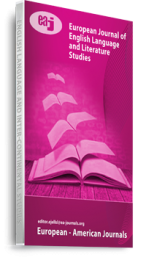This research examines language choices employed by the spouses during their conflictual interactivity as depicted in the select Nigerian plays. The analysis is anchored on Modality aspect of Interpersonal Metafunction theoretical Framework of Michael Halliday, 1960. Its modality specificity is because it is a grammatical resource for making interpersonal meaning. The analysis focuses on the provocative language usages of the spouses during their dialogical interactivity in the plays. The analysis is of qualitative research design, and thesampling technique for data collection is purposive. Twenty-five (25) data excerpts are used for the analysis. The result shows dominance of Modulation Obligation modals, followed by Modulation Inclination, and a minor detect of high Probability Modalization. The prevalence of the Modulation modality is as a result that the spouses’ relations revolves around proposal, a form of speech function that expresses either offer or command. Command aspects of it is found prevalent within the conflictual discourse of the male spouse, who expects obeisance of the commands from his female counterpart.The research reveals to the reader the use of variants modals and gives clue to understanding the negative implication of inappropriate application of high sounding types in cordial relationship like marriage.
Keywords: Interpersonal Metafunction, Marital Discourse, Modalization Probability, Modulation Inclination, Modulation Obligation

